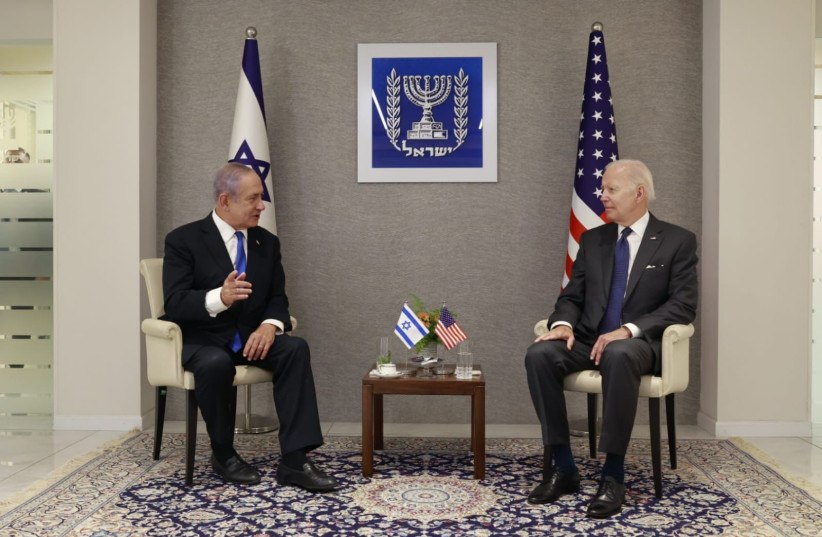Prime Minister Benjamin Netanyahu’s visit to the United States holds profound significance, occurring three years after the historic signing of the Abraham Accords, which ushered in a new era in the Middle East. Amidst this transformative period, there are dynamic changes unfolding in the region that warrant the prime minister’s keen attention.
As Netanyahu participates in a series of events surrounding the UN General Assembly in New York, a crucial meeting with US President Joe Biden awaits him. Israel has vital messages to convey to its closest ally, the United States.
The bond between our two nations has never been stronger, representing two stalwarts of democracy in a world fraught with uncertainty. As antidemocratic forces prepare to address the UN, advocating for a new world order rooted in authoritarianism and exemplified by countries such as Iran, Israel remains a steadfast beacon of freedom in the region.
Israel is a beacon of freedom in the Middle East
It is important to acknowledge that like all democracies, however, Israel faces its own challenges, including impassioned disputes, furious protests, and differing interpretations of our Declaration of Independence.
Even in the midst of the ongoing conversation about the balance of powers between the different branches of Israel’s government, however, our intricate democracy continues to function effectively, and Netanyahu must stress that point. He must address concerns in the US regarding the direction of Israel’s judicial reform, as true friends express their concerns and engage in open dialogue.

Today, Israel’s defense technology plays a vital role in US military equipment, including tanks and armored vehicles. Our cutting-edge air-defense systems, such as Iron Dome, have also found a place in the US arsenal, with discussions under way for further acquisitions. Simultaneously, we are procuring US aircraft, including advanced F-35 warplanes, and other critical systems that bolster our security in the face of myriad regional threats.
It is imperative that the ties between the US and Israel remain firmly anchored – not only in shared values and interests, but also in the trade and defense partnerships that fortify our collective strength. These collaborations extend beyond our borders, as evidenced by recent G20 meetings, which envisioned a corridor of economic power stretching from India through the Middle East to Europe.
To foster the growth of this corridor and enhance regional stability, we must be vigilant in preventing the materialization and expansion of Iran’s menacing threats. Netanyahu has tirelessly sounded the alarm about Iran’s nuclear ambitions for nearly three decades, and the Iranian regime continues its perilous path, enriching uranium and jeopardizing the entire region’s security. The US must stand firm in its opposition to any Iranian nuclear capability.
Saudi Arabia presents a promising new potential partner for peace with Israel, and it is imperative that both the US and Israel remain committed to exploring the possibilities of normalization. While there may be hidden complexities in the current discussions between the US and Saudi governments, such as Iran’s pressure and Riyadh’s expectations, we must steadfastly articulate our shared goal of achieving normalization.
Closer to home, recent reprehensible comments by Palestinian Authority President Mahmoud Abbas have once again exposed the deeply ingrained antisemitism within the PA. It is crucial that we continue to pursue peace while simultaneously working alongside the US to stabilize the PA and counter terrorist groups.
Finally, antisemitism is a global scourge that transcends political boundaries, and its resurgence demands our collective attention. The recent appointment of a new Israeli envoy to combat Jew-hatred, coupled with the Biden administration’s release of the first-ever national US strategy on the subject, highlight our joint responsibility to fight this age-old hatred.
It is paramount to emphasize that modern-day antisemitism, in all its forms and from both the hard Left and the far Right, is utterly unacceptable. Together, we stand as key partners in the fight against this enduring evil.
